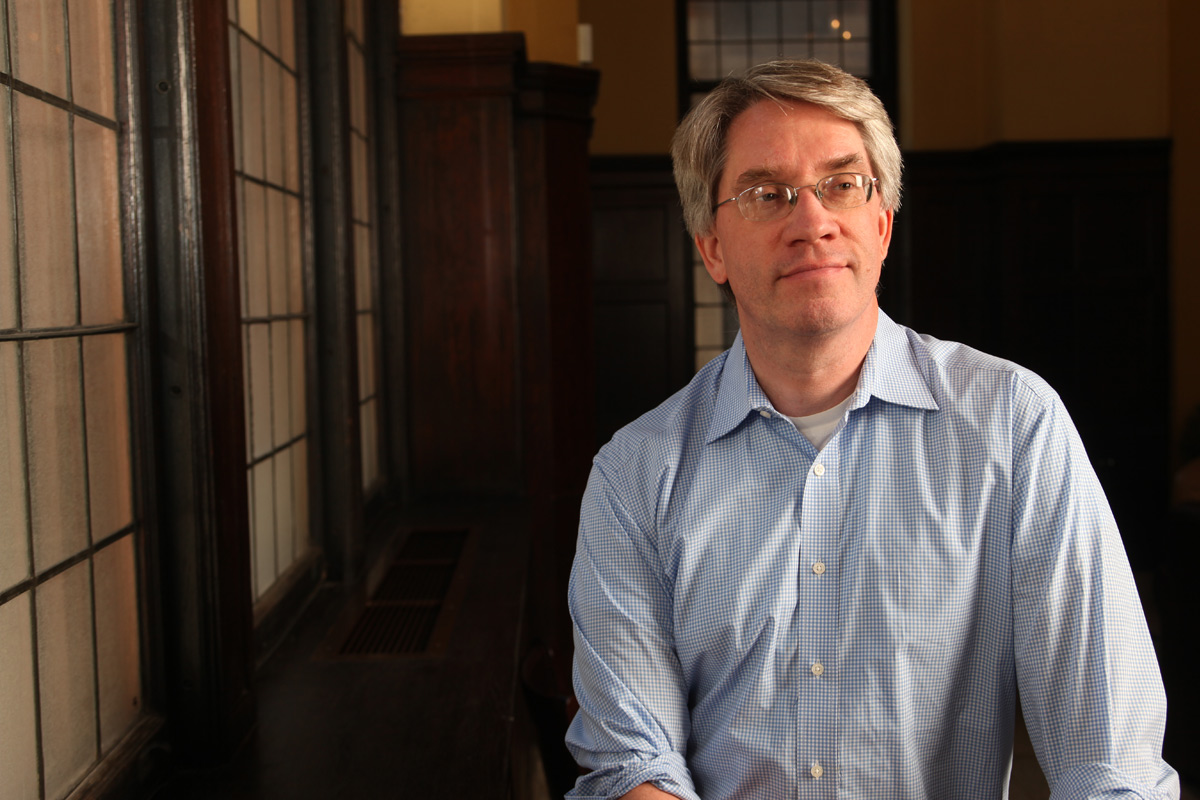In 1985, the Consortium for Policy Research in Education (CPRE), a new network of scholars at top U.S. research institutions, began analyzing the effectiveness of education policies and standards and providing evidence-based knowledge to improve education practice. For the past 12 years, during the recently-concluded Teachers College presidency of CPRE founder Susan Fuhrman, TC has been a principal branch of the Consortium – and last fall, TC Associate Professor of Education & Public Policy Douglas Ready was named Director of CPRE/TC.
“It’s humbling to help lead an organization with a 30-year record of conducting high-quality research on how to improve K-12 schooling, and that’s generally regarded as one of the premier university-based policy evaluation organizations,” says Ready, who continues to serve on TC’s faculty.
For Ready, a former middle school teacher who has spent his academic career studying how policies influence educational equity for economically and socially disadvantaged students, leading CPRE/TC is a logical next step. Ready’s work, which spans education, sociology and public policy, includes research that uses large-scale, longitudinal datasets to explore the effects of school segregation on cognitive and social development. With TC’s Amy Stuart Wells, Ready also conducted a major analysis of de facto school segregation on Long Island 60 years after the U.S. Supreme Court’s ruling in Brown v. Board of Education. And in a study just released in the American Journal of Education, Ready and TC alumna Elizabeth Chu measured the effects of school suspensions on student performance in New York City. Using sophisticated methods that took into account students’ preexisting performance and behavior differences, Ready and Chu discovered that suspensions were still associated with more negative outcomes, including weaker attendance, course completion rates and standardized test scores; a higher likelihood of dropping out; and a smaller chance of graduating within four, five or six years.
“It’s humbling to help lead an organization with a 30-year record of conducting high-quality research on how to improve K-12 schooling, and that’s generally regarded as one of the premier university-based policy evaluation organizations.”
– Doug Ready
Under Ready’s leadership, a group of more than a dozen TC faculty and graduate students is now conducting a range of CPRE research projects that provide rigorous and comprehensive evaluations of innovative education initiatives, ranging from technology-focused instructional interventions to policies aimed at increasing teacher retention in large, urban school districts. “Every project is to some degree focused on improving teaching and learning,” Ready says. “We are question-focused, not method-focused. We use whatever research techniques are demanded by the particulars of each project.”
The largest of CPRE/TC’s current studies is an evaluation of Brazil’s National Common Core Curricular Base, or BNCC. The study, which is funded through 2023 by Fundaҫão Lemann (the Lemann Foundation, which partners closely with TC on a number of levels) and Itaú Social, is analyzing the successes and challenges associated with BNCC implementation. A central part of the study is to determine the extent to which mandated standards actually influence what happens in classrooms and schools. In addition to design and document analysis, the CPRE team will interview a wide range of policymakers, practitioners and politicians, and conduct qualitative fieldwork in 18 elementary schools across three states.
CPRE/TC’s closest partner in the study is Susan Fuhrman, who remains, says Ready, “the number one expert on standards-based reform in the nation. She defined the field.
“Who better than CPRE’s founder to assist with the BNCC study, a perfect example of the kind of long-term, large-scale evaluations of policies and programs that CPRE takes on?” says Ready. “Our aim is to ask informed questions and apply sophisticated tools that help determine whether policies and programs are fulfilling their aim of making schools better.”
